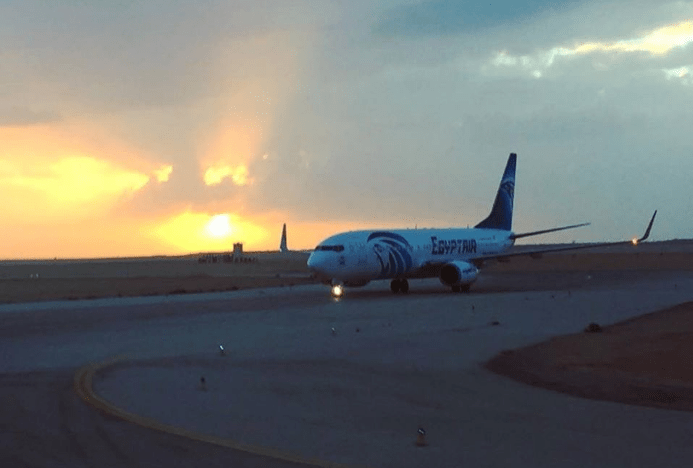According to the website Flightradar24.com, there were no Danes on board the EgyptAir-owned Airbus 320-232 that disappeared over the Mediterranean Sea last night on its way from Paris to Cairo.
According to an EgyptAir official on Twitter, the flight had 66 people on board: 30 from Egypt, 15 from France, two from Iraq and one each from the UK, Belgium, Kuwait, Saudi Arabia, Sudan, Chad, Portugal, Algeria and Canada.
“EgyptAir confirms there were 56 passengers in addition to 10 cabin crew members on board the aircraft,” the airline wrote on Twitter.
“An EgyptAir official declared that the EgyptAir A320 aircraft with flight number MS804 lost contact with radar above the Mediterranean Sea about 280 km from the Egyptian seacoast at 02:30 am CLT as the flight was expected to arrive at Cairo Airport at 03:15 am CLT.”
READ MORE: Drone gets dangerously close to passenger plane near Copenhagen Airport
Egyptian aviation issues
According to the Reuters news service, the airline believes the airline crashed into the sea. No mayday call was emitted from the plane prior to its disappearance, and there was contact with the flight just ten minutes before it vanished.
The aircraft was about 16 km inside Egyptian airspace flying at an elevation of about 11 km when it disappeared and it was just 30 minutes away from Cairo.
Egypt has had its fair share of plane incidents recently. Last October, a Russian passenger plane carrying 224 people crashed while flying over the Sinai Peninsula, while in March a man hijacked an EgyptAir flight and forced it to land in Cyprus so he could see his ex-wife.















